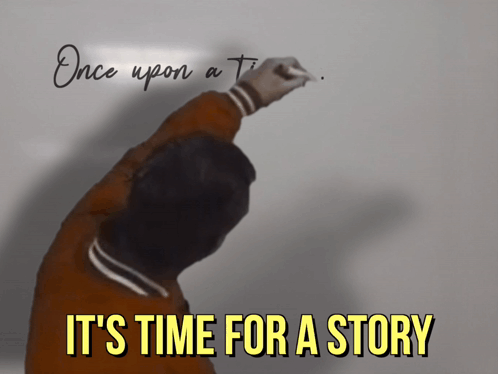If you’ve been invited as a guest on the show, first off, thank you. This isn’t your average podcast taping. It’s a space for deep dives, honest confessions, and stories that reveal what truly shapes our understanding of love, trust, and connection.
The episode runs between 45 to 60 minutes, and while the time may fly by, the conversation tends to linger in the mind long after.

A Dialogue, Not an Interview
Our format isn’t rigid. Think of it more as a dynamic back-and-forth—a conversation between two curious minds exploring the messy, beautiful, and often contradictory world of relationships. I’ll ask a series of open-ended, thought-provoking questions. These are not designed to trap or trick, but to open up reflection and, ideally, storytelling.
Where the Real Gold Lies: Your Stories
While opinions are welcome, it’s your experiences—your “I’ll never forget when…” or “There was this moment when I realised…”—that bring richness to the dialogue. Listeners are drawn not just to what you believe, but why. How did you come to that belief? Who shaped it? What did it cost you to learn it?
Don’t feel pressured to be “right.” Vulnerability, humour, contradiction—all of it belongs here.

What Kinds of Questions?
Without giving too much away, the questions span emotional fidelity, modern ethics in love, trust in the digital age, gender roles, communication gaps, and the line between independence and intimacy. Some will feel personal. Some might challenge your views. And a few might make you laugh or shift in your seat. That’s by design.

This isn't a show built on shock value. It's built on curiosity. If we’re lucky, the conversation might change the way someone listening sees their own relationship—or themselves.
Wrapping Up: The Lightning Round
Before we close, we’ll jump into a short lightning round—six quick-fire questions that reveal instinctive responses. These are less about long stories and more about gut reaction. Think of it as the emotional palate cleanser that brings us home.
Here are some questions which I could be asking you:
- Should love be unconditional—even when someone cheats? — This question probes whether love should persist even after serious betrayal, like infidelity; is leaving a failure of love, or a form of self-respect?
- Is emotional cheating worse than physical cheating? — While physical affairs are often seen as more damaging, emotional affairs can create deeper, longer-lasting fractures in trust.
- Should you tell your partner if you find someone else attractive? — Being honest about fleeting attractions may foster openness, but could also create unnecessary insecurity or jealousy.
- Is it ever okay to go through your partner's phone? — A common modern dilemma: does suspicion justify invading privacy, or is trust eroded either way?
- Should couples have access to each other’s passwords? — Sharing passwords can suggest full transparency, but it might also erase necessary individual boundaries.
- Can a relationship survive without sexual intimacy? — Some couples maintain emotional closeness without sex, but for others, it’s a non-negotiable expression of love.
- Is flirting with someone else while in a relationship ever harmless? — It may feel innocent to one, but to the other partner, it could feel like a betrayal or a warning sign.
- Should exes be completely cut off once you're in a new relationship? — Maintaining ties with exes might suggest maturity or unresolved feelings—depending on context.
- Is marriage still relevant in today’s society? — With shifting values and cohabitation becoming more common, the necessity of marriage is often questioned.
- Can you truly love two people at the same time? — This raises the age-old tension between romantic idealism and emotional complexity.
- Should couples share financial accounts entirely? — Total financial transparency can build trust, but separate accounts may preserve autonomy and reduce conflict.
- Is it okay to keep secrets from your partner if they don’t affect them directly? — Minor secrecy might preserve peace, or it might indicate larger problems of communication.
- Should you always prioritise your partner over your friends? — Love often asks for sacrifice, but does it require distancing long-standing friendships?
- Is sex without love acceptable in a committed relationship? — This touches on whether physical needs can be met apart from emotional connection—or if that undermines commitment.
- Should your partner know everything about your past? — Total honesty might strengthen intimacy, or open old wounds unnecessarily.
- Is staying together for the kids the right choice? — This question weighs short-term stability for children against long-term emotional damage.
- Can jealousy ever be healthy in a relationship? — Some see jealousy as a sign of care; others view it as insecurity and control.
- Should your partner be your best friend? — While emotional closeness is vital, expecting one person to fill every role may set the relationship up for strain.
- Is it okay to fantasise about others while in a relationship? — Fantasy is natural to some, betrayal to others; this tests the line between imagination and disloyalty.
- Should you break up if your goals in life don’t align? — Love might not be enough if one wants kids and the other doesn’t, or if career paths clash fundamentally.
- Is it acceptable to stay in a relationship for financial stability? — While pragmatic, this could imply emotional compromise or manipulation.
- Can a relationship recover after betrayal? — Healing is possible, but it raises questions about time, forgiveness, and emotional resilience.
- Should both partners contribute equally to household tasks? — Equality in chores is seen as respect, but how does this change with differing workloads or incomes?
- Is it okay to have friends your partner doesn’t like? — Loyalty to friends versus maintaining peace in the relationship is a common source of tension.
- Should you date someone your family doesn’t approve of? — Love might feel personal, but cultural and familial pressures can weigh heavily.
- Can you ever fully forgive someone who has hurt you deeply? — Forgiveness may be essential for healing, or impossible depending on the nature of the hurt.
- Is it okay to criticise your partner in public? — Some say honesty is refreshing; others believe respect demands privacy for sensitive conversations.
- Should you stay if the love is gone but companionship remains? — A relationship can offer comfort without passion—but is that settling or evolving?
- Is it ever okay to use sex as a bargaining tool? — Withholding intimacy as leverage might seem strategic, but it can damage emotional trust.
- Should your partner be responsible for your happiness? — While support is vital, outsourcing emotional wellbeing to another person can be unfair or unrealistic.
- Can long-distance relationships really work? — Physical absence tests emotional bonds—some grow stronger, others wither.
- Is love alone enough to make a relationship last? — Passion without compatibility or shared values may burn out quickly.
- Should you share all your social media messages with your partner? — Total transparency might reduce doubt, but also creates an atmosphere of surveillance.
- Can a relationship survive after one partner comes out as queer? — Such revelations can transform identity and dynamic, often making the existing relationship unsustainable.
- Is it okay to stay in touch with someone you once had feelings for? — Old emotions may resurface, or fade—but how would your partner feel about it?
- Should you date someone who earns significantly less or more than you? — Financial imbalance might introduce power dynamics or resentment.
- Is falling out of love a good enough reason to leave? — Commitment may demand endurance, but emotional disengagement can be deeply painful.
- Can people truly change for love? — Behaviour may shift with effort, but fundamental personality traits might remain unchanged.
- Should couples share their location at all times? — It might offer reassurance or feel like surveillance, depending on the motive.
- Can watching porn be considered cheating? — To some it's harmless fantasy; to others, it's emotional disloyalty or a breach of trust.
- Is withholding affection a form of emotional abuse? — When affection is deliberately denied to punish, it crosses into manipulation.
- Should a partner have a say in how you dress? — Advice might feel caring, but control over appearance can signal deeper issues.
- Is lying to protect your partner ever justifiable? — White lies may seem harmless, but they can also erode trust over time.
- Should you break up if your sex drives don’t match? — Physical incompatibility often causes long-term frustration if left unaddressed.
- Can open relationships work long-term? — Some couples thrive in ethical non-monogamy, while others struggle with jealousy and boundaries.
- Should you forgive a partner who hits you once and promises to change? — Abuse is a serious line, and even one incident could indicate deeper dangers.
- Is it okay to not want kids if your partner does? — Opposing desires around parenting can be a deal-breaker, no matter how strong the bond.
- Can therapy fix a broken relationship? — Counselling offers tools and insight, but healing requires both parties to genuinely participate.
- Is it wrong to spy on your partner's social media activity? — Even with good intentions, it implies distrust and can harm the emotional climate.
- Should your partner support your dreams even if they don’t understand them? — Emotional support is part of love, but what if it conflicts with their own values or comfort?
- Can you love someone and still be unhappy with them? — Love might persist despite dissatisfaction, but whether that means staying is another question entirely.
